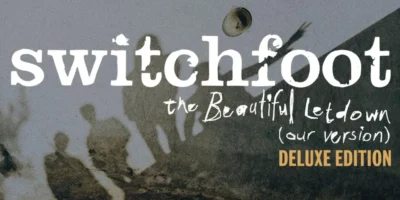Genre: Alternative Pop, Glam
Favorite Tracks: “Down and Out Downtown,” “Down,” “Laughing Man,” “Somebody Like Me”
To be frank, I have had a hell of a time trying to figure out how to begin talking about St. Vincent’s latest album DADDY’S HOME. This is not because there are no words to describe the album—in fact, it’s easy to describe this record; Annie Clark decided to write some songs in the style of the early-to-mid-‘70s records that her dad introduced her to as a child. If only any of the press surrounding the record was that straightforward. In the lead-up to the record’s release, you can find articles that swear this record is all about Clark’s father being released from prison; that it’s about incarceration, but it doesn’t say enough about the injustices of the prison system; that it’s about her daddy; that it’s about how she’s daddy; that it’s about how we’re all daddy! At a certain point in reckoning with this review, I finally realized that I don’t give a shit about what it means. Honestly, everything around this album was starting to take away from what the record is in its simplest form: another very solid entry into the St. Vincent catalogue. If you start breaking out magnifying glasses to decode and identify every (unfortunate) detail that was mentioned in the rollout for the album, you are going to be exhausted.
So let’s get the title track out of the way as quickly as possible. Annie Clark’s titular daddy got out of prison; she wrote a song about it, and named the album after it. It’s a fine-enough track, with personal lyrics describing one instance where she visited him and addresses the effects his incarceration has had on her life when she muses “Yeah you did some / Well, I did some time too.” The song has a sleazy, bluesy lounge vibe, with Clark letting out some pretty harsh growls in between the refrains, and the emotions tied up in the track are obvious (as they should be). It’s easy to imagine that anyone would have a strong emotional response to a parent serving a prison sentence and that those emotions might need to be expressed in order to deal with them. Choosing the song as the title track for the record can be seen as the first misstep in its rollout, diverting a lot of the attention for the album as a whole for this one small aspect of it.
The second head-scratching moment occurs with lead single and album opener “Pay Your Way In Pain,” the most out-of-place track in terms of its overall essence. Outside of the vocal melodies in the chorus that sound vaguely like David Bowie’s “Fame,” the instrumentation, particularly the warbly synth bass, just feels at odds with the rest of the record. Lyrically, it lines up with the ideas of desperation, or being down and out, the major focal points of the record, but something sonically just places it slightly outside of the ground covered on all the other tracks. “Pay Your Way In Pain” serves to better introduce the new character she’s embodying, the blonde-wig-wearing, hot-mess-of-a-boss she plays on the album cover and in the song’s accompanying video.
In reassessing the songs, “Down and Out Downtown” emerges as a better introduction to the sounds that tie the rest of the record together. Built around a soft and smooth bass groove and a hushed electric piano, Clark quietly begins to spin her yarn of wearing “Last night’s heels / On the morning train.” Her use of electric sitar to mirror the bassline in the verses helps solidify the overall sepia-toned NYC vibe she’s attempting to lift from the records she’s taken inspiration from. The chorus opens up into something a little brighter, blending synths, horns, and female backup vocalists that are utilized throughout the album. Lyrically, “Down and Out Downtown” introduces some key ideas and phrases that will pop up later, mainly the idea of being, well, down and out, in the title track and “Melting of the Sun,” as well as the bodega roses that appear in the oddly chosen closer “Candy Darling.” These repeated themes, along with the completely unnecessary humming interlude tracks, could possibly be mistaken for a suggestion that there might be some kind of cohesive narrative that takes place in the mid-’70s milieu Clark has chosen for DADDY’S HOME, but there is not—and again, that is totally fine. It doesn’t take away from the effectiveness of the Floyd-ian slip of an acid trip that is “Live in the Dream,” or the undeniable funky grooving found in “Down,” but it does kind of lead you to tilt your head ever so slightly when you get to the tracks that don’t fit quite as obviously into that ’70s pastiche.
It all leads DADDY’S HOME to feel like a bit of a bummer, because those tracks are some of the strongest on the album. “The Laughing Man” comes off as one of the most traditional-sounding St. Vincent offerings on the record, one that could easily fit in on any of the first three albums—minimal musical arrangements and straightforward lyrics with a healthy dose of self-aware cynicism that find Clark day drinking and pissed off at the singing birds. She’s down and out, but she’s not specifically telling us that she is. “Laughing Man” gives way to “Somebody Like Me,” a beautifully finger-picked ballad colored with subtle slide guitar and strings. These songs stand out because of a level of intimacy that doesn’t always make itself apparent on the rest of the tracks. This personal touch also shines bright on “My Baby Wants A Baby,” where she bares her honest opinions on why parenthood might not be for her. You can hear the growing desperation as she confesses her fears that she “Won’t write no symphonies / Won’t have no streets named after me” if she were to choose motherhood over her current lifestyle. It hits hard. For this brief three-track segment, it seems we get Annie Clark, not the newly realized “Daddy” identity.
The bottom line is that DADDY’S HOME is a solid album, but I’m not sure how many people are going to put it down as one St. Vincent’s top three releases. It was presented to us with too much definition, too much context, and became bogged down with ever-changing explanations of what it is. Perhaps this decision to adopt a new persona with each album cycle is what is fueling the over-analytical fire that seems to get lit every time St. Vincent announces a new record. The audience, fans, and media alike, want to know what it all means, so they can build anticipation when they read pre-release details they like, and to lower their expectations when they read something they don’t. At this point in her career, Annie Clark owes no one an explanation. The music is, and always has been, quite capable of speaking for itself.
















Comments